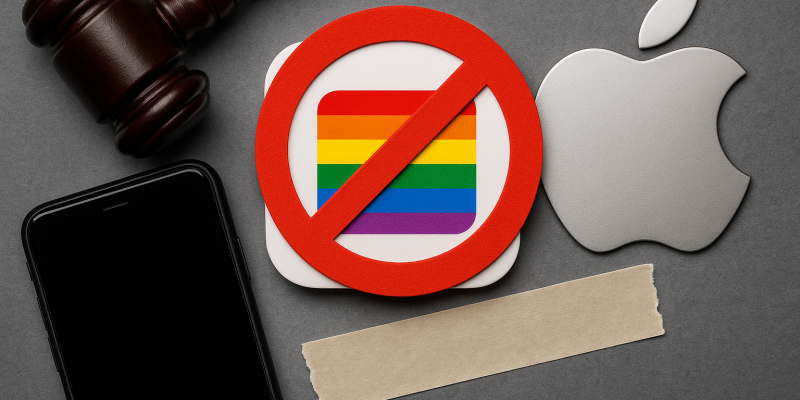
Apple has removed two of China’s most-used gay dating apps, Blued and Finka, from the Chinese iOS App Store after an official request from the Cyberspace Administration of China.
The directive, issued over the weekend, led to both apps vanishing from the platform with no prior notice.
Apple later confirmed the move, stating that it acted in response to government orders and that it continues to follow local laws in the territories where it operates.
Although Blued’s express version remains available, the full-featured versions of both apps are now inaccessible to new users in mainland China.
The decision aligns with a series of similar takedowns in the country targeting unlicensed, foreign, or ideologically sensitive content, especially relating to LGBTQ topics.
CAC action follows a clear regulatory trajectory
The Cyberspace Administration of China, Beijing’s top internet regulator, has systematically expanded its oversight over app stores and digital platforms.
The removal of Blued and Finka mirrors an earlier case involving the US-based app Grindr, which was banned from iOS in 2022.
In both instances, the regulator cited concerns around non-compliance and inappropriate content.
In 2023, China mandated that all mobile applications serving domestic users must register with the government and obtain a license by April 2024.
This regulation triggered the withdrawal of numerous apps that failed to meet the state’s increasingly formalised standards.
Apple also removed WhatsApp and Threads from its Chinese App Store in April 2024, following a CAC directive citing national security risks.
The CAC’s increasing authority is not limited to enforcing legal compliance.
It extends into managing cultural and political content, effectively controlling which platforms and narratives are permissible in China’s digital space.
Apple’s compliance with these directives has become routine, reflecting the commercial necessity of maintaining uninterrupted access to China, its largest overseas market.
LGBTQ content faces intensifying restrictions
The targeting of Blued and Finka highlights a trend of increased censorship of LGBTQ content within China’s digital environment.
Although homosexuality was decriminalised in 1997, same-sex marriage remains unrecognised, and expressions of queer identity are often categorised as politically sensitive or ideologically inappropriate.
In recent years, advocacy groups have come under pressure. The Beijing LGBT Center, a prominent community organisation, was shut down in 2023 amid tightening state scrutiny.
These institutional closures are mirrored online, where algorithmic filtering and direct takedowns have restricted visibility and access to LGBTQ-friendly platforms.
The absence of alternative dating platforms tailored to the LGBTQ community in China underscores the significance of the removal. Blued and Finka were among the few remaining large-scale digital spaces where queer users could connect.
Their disappearance reinforces the shrinking boundaries of safe expression both offline and online.
Apple balances compliance with market exposure
Apple’s continued willingness to fulfil takedown orders from Beijing is consistent with its broader operating strategy in China.
Previous removals of VPN services, news apps, and now social networking tools all point to a corporate approach rooted in legal conformity over policy resistance.
Apple stated that the app removals were specific to the Chinese storefront and that the apps remain available elsewhere.
However, for Chinese users, this distinction offers little consolation.
Content and platforms deemed sensitive are erased from the local ecosystem.
The post China’s app purge hits LGBTQ platforms as Apple concedes censorship demand appeared first on Invezz







